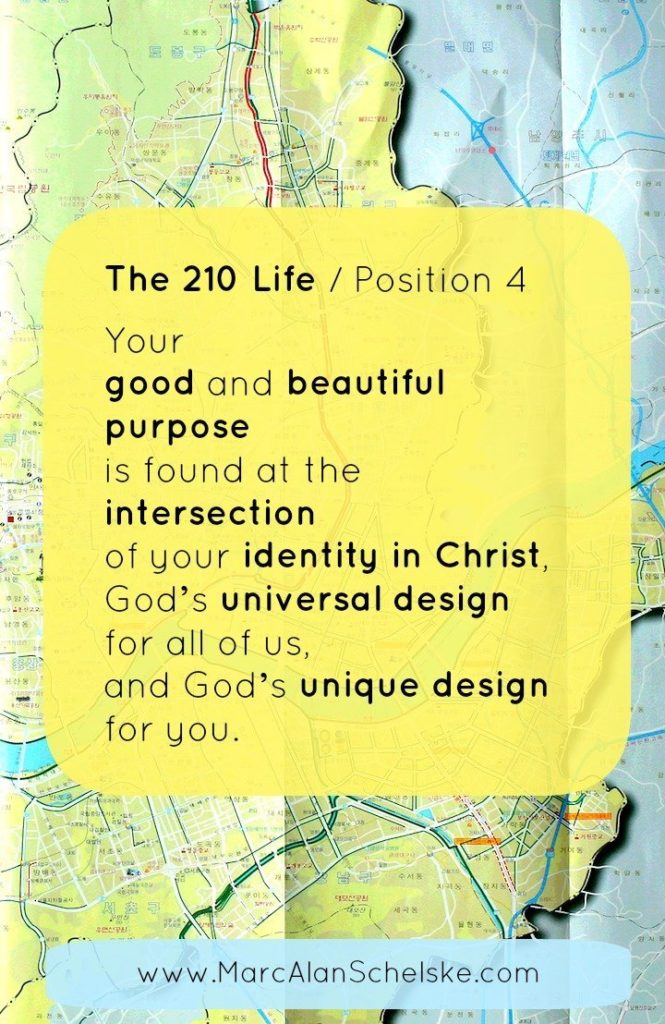6 min. to read.
I was heading to a lunch meeting with another car following me. We were headed to a restaurant a few miles away. While driving, I was thinking about a heavy conversation I had upcoming. Then I got a text message.
While I was multi-tasking, (don’t judge me!) a semi truck merged into my lane. It wasn’t dangerous; they were a ways ahead of me. I just hate driving behind trucks because I can’t see.
So, I changed lanes. My mind was busy changing lanes too. The upcoming conversation, the text, the truck, my irritation with the driver, all of these were buzzing together in my head. An exit approached. I took it, only realizing too late that it was the wrong exit with no convenient way to get back on the highway. I wound my way through side streets, making it to our destination after a few detours. We got there, but we took twice as long as we should have. The person following me could only assume I had no idea where I was going.
I took the wrong exit because my mind lost focus. With so much noise in my head, I was not present to what mattered at the moment I was in. I reacted. I reacted to the anxiety I had regarding the conversation. I reacted to the text. I reacted to the truck. This chain of reactivity took me somewhere I didn’t want to be — both literally and in my thinking.
This same thing happens in our lives on a much larger scale. Instead of taking the wrong exit ramp and looking foolish, the consequences are larger. We end up wading through decisions and painful relationship choices, we grind away our days doing things we weren’t made for, living out of integrity, all because we lost track of our purpose.
Finding your purpose keeps you on track.

How can you avoid getting off track like this? An intentional spiritual life comes when you begin living with your good and beautiful purpose in mind.
Remember these things that we’ve covered in this series on the 210 Life already:
- You were created by God, a hand-made piece of art, with a good and beautiful purpose. (Position 1).
- Living into your good and beautiful purpose brings you spiritual vitality which naturally reflects the Artist’s glory. (Position 2)
If those things are true, then it’s vital for you to know your good and beautiful purpose.
So, how do you find this out? Is there a test you can take? Can you just pick a purpose that sounds the most fun or will make you the most money? Nope, not if you also want a spiritually vital life. You were designed by a Master Artist. There is intention and creativity and purpose already embedded within you.
That leads us to Position 4:
Your good and beautiful purpose is found at the intersection of your identity in Christ, God’s universal design for all of us, and God’s unique design for you.
1) Your Identity in Christ.
Your identity, the sense of self you carry around, is a composite of so many things.
The words of your parents, the things you think you’re good at, the meaning you made out of different circumstances in your life, the impact of trauma and pain.
This self-image shapes the way you live and relate. But God, who made you, knows the real you. In scripture, God lays out some of these the identity truths about you.
- You were chosen from before the foundation of the world. (Ephesians 1:4)
- You were created for good and beautiful things. (Ephesians 2:10)
- You are invited to become a priest (someone with a connection to God) and a king (someone with authority and the ability to get things done.) (Revelation 5:10)
- You are a beloved child (1 John 3:1)
The more you understand the way God sees you, the more you can leave behind the unhealthy and unhelpful identity that is keeping you from experiencing spiritual vitality and making a positive mark on the world.

2) God’s Universal Design.
You were handmade by the Master Artist. But so was all of humanity. There is a design that God has for everyone. These are a few of the things that God intends for every person.
- God wants every person to believe in Jesus and have eternal life. (John 6:40)
- Every person has the purpose of serving God and others. (Ephesians 6:5-8)
- God’s universal purpose for humanity includes taking care of the world we live in. (Genesis. 2:15)
- God intends that we would all mature and grow spiritually. (Ephesians 4:15)
- That we would experience joy as a result (John 15:11)
- God’s universal will for humanity is that we would love each other (John 13:34)
Knowing God’s universal design serves as a filter through which to see the world. The more you understand God’s universal design, the easier it is for you to see the paths that lead away from life, health, community, and growth.
3) Your Unique Design.
God has a universal design for all of us, but you are not just one among many. God is not an artist who made one masterpiece and then licensed unnumbered reproductions and postcards to be sold cheaply at truck stops. God made every single one of us with full knowledge and care. Even you.
This doesn’t mean that there’s one perfect job or one perfect spouse for you that fits God’s perfect plan. God’s far less concerned about the circumstances of our lives than we think. God’s design for you has to do with the kind of person you are becoming. As you get to know your own story, and what gives you life, you will begin to see clues to how God uniquely shaped you.
In future posts, we’ll look at each of these designs and how they intersect. We’ll also talk about how they help in finding your purpose. But today keep this in mind: The more mindful you are of the good and beautiful purpose God has for you, the easier it will be for you to find a life-giving and powerful way to live.

the Question: What things most easily distract you from moving forward with purpose? comes too soon in the development of this series.
A more appropriate question for this first post might be: What do you think God’s purpose for you might look like? How do you think knowing God’s purpose for you might change what you do with your life? – or – Do you think that living out God’s purpose for your life might be harder or easier for you? … why?
Any of these questions could lead to your next or a later post – eh?
Good feedback. Those are definitely the questions that will be on the table in coming posts.
For me, my physical ailments railroad my moving forward again and again and again. Given what I have learned about food, environmental toxins, etc., this must be a very common and yet little understood predicament. I can’t even begin to share a fraction of what I know and practice without totally overwhelming the average person. And still I suffer. Granted my physical body took a terrible beating from gluten before I realized what was wrong, but it is still frustrating to be so fragile.
you may want to check your photos for licensing issues. CC-BY means you have to give credit to the copyright holder and that’s not too much to ask for, is it.
Absolutely! I try to give credit for every photo I use, and only use photos that are cleared for public use, either by a CC license or by purchase through a stock photo service. I think all the photos on this page are properly credited. Am I missing something?
I like where you’ve brought us in this series. Definitely not the same old message that’s been beating me down over the years. I especially like reframing our purpose in light of the three factors of who we are in Christ, God’s universal design and my unique design. It’s comforting to remember that God’s universal design is not one-size-fits all, but is composed of myriad unique designs, each of which is supposed to do what brings it joy. Thanks for such a positive message. I appreciate the invitation to be someone connected to God who has the power to get things done.
I’m so glad to hear that you’re finding this helpful and encouraging. Thanks for letting me know how it’s hitting you. I know that life is not always joyful or happy, and there are times when doing the right thing, doesn’t always feel great. But I do believe that the more we seek our identity in Christ, the more we will experience real joy.